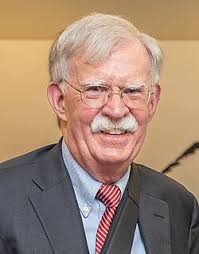John Bolton: A Key Figure in U.S. Foreign Policy

Introduction
John Bolton, a prominent figure in U.S. foreign policy, has played crucial roles in various administrations, most notably under President Donald Trump. His views on nationalism, military intervention, and global diplomacy have generated significant debate. As geopolitical tensions escalate globally, understanding Bolton’s perspectives and actions is more relevant than ever.
Career Highlights
Bolton served as the U.S. National Security Advisor from April 2018 to September 2019. His tenure was marked by a strong stance on Iran and North Korea, advocating for a hardline approach. He previously held positions as U.S. Ambassador to the United Nations from 2005 to 2006 and undersecretary for arms control and international security.
Recent Developments
Recently, Bolton has emerged in discussions surrounding the ongoing conflict in Ukraine and U.S.-China relations. In a statement made in October 2023, he emphasized the importance of a robust U.S. military presence in Eastern Europe to deter aggression from Russia. Additionally, he has voiced concerns over China’s military assertiveness in the Indo-Pacific region, advocating for increased American support for allied nations.
Public Perception
Public opinion on Bolton is divided; some view him as a staunch defender of American interests, while others criticize his interventionist approach. His appearances on various news platforms continue to stir discussions on the efficacy of past foreign policies and future strategies, particularly in an increasingly multipolar world.
Conclusion
With the current global dynamics involving rising authoritarianism and shifting alliances, John Bolton’s insights and advocacy bring significant attention. His experience suggests that U.S. foreign policy may pivot towards more assertive stances in the coming years. Observers of international relations should keep an eye on Bolton’s influence and the implications of his views on future U.S. strategies abroad.


